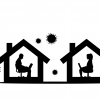UPR-IPERT Modules
Los webinars de UPR-IPERT son una colección de módulos interactivos, de una hora aproximada de duración, para desarrollar destrezas de investigación en los siguientes temas:
- Dimensiones sociales de la salud
- Efectos Psicosociales de los desastres naturales
- Etnobotánica y productos naturales
- Dimensión afectivo emocional de los aprendizajes
- Epidemiología de las infecciones de transmisión sexual en Puerto Rico
- Resiliencia y búsqueda de ayuda por y para el adulto mayor
- El efecto de la contaminación por ruido en el comportamiento y el sistema nervioso utilizando el modelo experimental del cangrejo ermitaño
- La función del sulfuro de hidrógeno en las enfermedades neurodegenerativas
- Impactos económicos de desastres naturales y la pandemia: el caso de Puerto Rico
- Mediciones de mitigación del SARS-CoV-2 utilizando un modelo epidemiológico
 Visita el área de Preguntas Frecuentes para encontrar información sobre los webinars.
Visita el área de Preguntas Frecuentes para encontrar información sobre los webinars.
*Los estudiantes interesados podrán acreditar las horas de los webinars hacia la obtención de un certificado en destrezas de investigación de 6 horas.
By Dra. Antoinette Alom Alemán (Psychologist, UPR-Cayey)
This is a series of modules on the topic of Affective-emotional dimension of learning mediated by virtual platforms at university. The modules in the series are:
- Tools and strategies for the critical reading of scientific articles on the affective-emotional dimension of learning mediated by virtual platforms at university
- Data collection techniques in the study of the affective-emotional dimension of learning mediated by virtual platforms
- Data analysis in the study of the affective-emotional dimension of learning mediated by virtual platforms
By Dr. Mayteé Cruz Aponte (Mathematics, UPR-Cayey)
This is a series of modules dealing the topic of Epidemiology of sexually transmitted infections in Puerto Rico. The modules in the series are:
- Tools and strategies for critical reading of scientific articles in mathematical models of infectious diseases
- Data collection methods in the epidemiology of sexually transmitted infections in Puerto Rico
- Data analysis in epidemiology of sexually transmitted infections in Puerto Rico
By Patria López de Victoria (English, UPR Cayey)
This is a series of modules dealing with the topic of the research project “Study on the resilience and search for help by and for the elderly,” which uses a linguistic approach focused on cultural and social practices, such as beliefs and behaviors reflected in phrases, stories, what is said and not said, when speaking about the difficulties that Puerto Rico faces.
The modules in the series include:
- Tools and strategies for the critical reading of scientific articles on resilience and the search for help by and for the elderly.
- Methodology for the study of resilience and the search for help by and for the elderly.
- Data analysis of the study of resilience and the search for help by and for the elderly.
By María de Jesús Burgos (Biology, UPR Cayey)
This is a series of modules dealing the topic of Epidemiology of the Effects of Noise Pollution on Behavior and the Nervous System Using the Hermit Crab as a Model Organism. The research skills taught in these modules can be applied to other research related to behavioral neurobiology,
The modules in the series include:
- Tools and strategies for critical reading of scientific articles for the study of the effect of noise pollution on behavior and nervous system, using the hermit crab (coenobita clypeatus) as an experimental model.
- Methodology related to the study of the effect of noise pollution on behavior and nervous system, using the hermit crab (coenobita clypeatus) as an experimental model.
- Data analysis of the study of the effect of noise pollution on behavior and nervous system, using the hermit crab (coenobita clypeatus) as an experimental model.
By Ruth Pietri (Chemistry, UPR Cayey)
This is a series of modules dealing with the research project "The role of hydrogen sulfide in neurodegenerative diseases," which seeks to answer the fundamental question of how H2S regulates the formation of fibrils in proteins, such as superoxide dismutase (SOD), which are implicated in neurodegenerative diseases.
The modules in the series include:
- Tools and strategies for the critical reading of scientific articles on the role of hydrogen sulfide in neurodegenerative diseases.
- Methodologies for the study of the role of hydrogen sulfide in neurodegenerative diseases.
- Analysis of data related to the study of the role of hydrogen sulfide in neurodegenerative diseases.
By Dr. Maytee Cruz-Aponte (Department of Mathematics-Physics, UPR Cayey)
This certification is offered through a series of modules dealing with the topic of the research project, “SARS-CoV-2 mitigation measurements using an epidemiological model,” where the effectiveness of interventions such as physical distancing, vaccination, effective treatment or social distancing, on the prevention, mitigation or eradication of the current pandemic in a given region, be it a community, a country or a continent, is studied. Our goal is to create a model that can be established in Puerto Rico to study the spread between towns or municipalities.
The modules in the series are:
- Tools and strategies for critical reading of scientific articles on SARS-CoV-2 mitigation measurements using an epidemiological model.
- Methodologies for the study of SARS-CoV-2 mitigation measurements using an epidemiological model.
- Analysis of data related to the study of SARS-CoV-2 mitigation measurements using an epidemiological model.
By José Caraballo Cueto (Business Administration, UPR Cayey)
This certification is offered through a series of modules dealing with the topic of the research project, “Economic impacts of natural disasters and the pandemic: the case of Puerto Rico,” in which two fundamental questions are considered: in the first instance, What is the impact of the hurricane, earthquakes and the pandemic on the socioeconomic conditions of two poor communities? Second, what is the impact of federal policies on the labor market in these communities?
The modules in the series are:
- Tools and strategies for critical reading of scientific articles, studies or reports on the economic impacts of natural disasters and the pandemic: the case of Puerto Rico.
- Methodologies for the study of economic impacts of natural disasters and pandemic: the case of Puerto Rico.
- Analysis of data related to the study of economic impacts of natural disasters and the pandemic: the case of Puerto Rico.
Series of modules related to the social dimensions of health. The modules of the series are:
- Research Ethics: Case Studies in Clinical and Social Research by Dra. Nancy Romero Daza (Anthropologist, USF)
- Attention to the social determinants of health to reduce health inequities or Dr. Carlos Rodríguez Díaz (Public Health, UPR-RCM)
- The dissemination of scientific findings and community outreach with non-academic communities by Dra. Aurinés Torres Sánchez (Educator in Public Health - UPR-RCM)
- “Natural” disasters: A topic for bioethics? by Dr. Jorge Ferrer (Theologian and Bioethicist, Pontificia Universidad Católica de Puerto Rico)
- When women neighbors become health promoters in their communities: participatory action research in health by Dr. Aurinés Torres (Salud Pública, UPR RCM)
By Dr. Iliana Rodríguez (Chemistry, UPR-Humacao)
This is a series of modules around the topic of Ethnopharmacology and Ethnobotany. The modules in the series are:
- Tools and strategies for critical reading of scientific articles on ethnobotany and its natural products
- Methodology and data collection in ethnobotany and natural products
- Data analysis in ethnobotany and natural products
By Dra. Patricia Noboa Ortega (Psychologist, UPR-Cayey)
This is a series of modules around the theme of Psychosocial Effects of Natural Disasters. The modules in the series are:
- Tools and strategies for critical reading of scientific articles on emotions in the face of natural disasters
- Research methodology on psychosocial effects of natural disasters
- Qualitative analysis of research data on psychosocial effects of natural disasters







